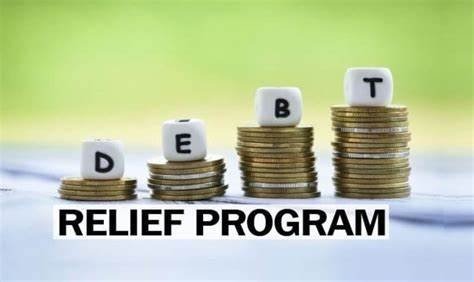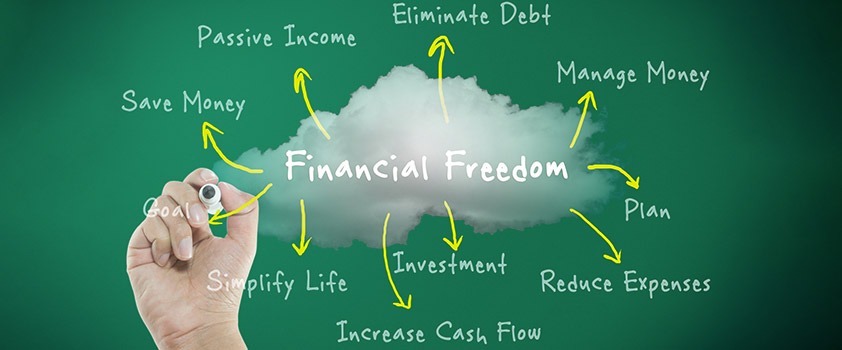Debt relief options are strategies designed to help individuals and businesses manage and reduce their debt burdens. These options provide various ways to consolidate, settle, or restructure debt, making it more manageable and allowing for a pathway to financial freedom.

Types of Debt Relief Options
-
Debt Consolidation:
- Description: Debt consolidation involves combining multiple debts into a single loan with a lower interest rate. This makes it easier to manage repayments and can reduce overall interest costs.
- Benefits: Simplified repayment process, reduced interest rates, and the potential to improve your credit score over time.
- Considerations: Ensure you qualify for a lower interest rate and that the new loan terms are favorable.
-
Debt Settlement:
- Description: Debt settlement involves negotiating with creditors to settle your debts for less than the full amount owed. This can be done through a debt settlement company or directly with creditors.
- Benefits: Reduced debt burden and the opportunity to settle debts quickly.
- Considerations: Debt settlement can negatively impact your credit score and may result in tax implications.
-
Credit Counseling:
- Description: Credit counseling provides professional advice and strategies to manage and reduce debt. Counselors work with you to create a budget, negotiate with creditors, and develop a debt management plan.
- Benefits: Personalized financial advice, budgeting tips, and debt management strategies.
- Considerations: Ensure the credit counseling agency is reputable and offers services that meet your needs.
-
Debt Management Plans:
- Description: Debt management plans involve working with a credit counseling agency to create a structured repayment plan. The agency negotiates with creditors to reduce interest rates and waive fees.
- Benefits: Structured repayment plan, reduced interest rates, and waived fees.
- Considerations: You may need to close your credit accounts and make consistent payments to the agency.
-
Bankruptcy:
- Description: Bankruptcy is a legal process that allows individuals or businesses to discharge or restructure their debts. There are different types of bankruptcy, including Chapter 7 and Chapter 13 for individuals.
- Benefits: Discharge of eligible debts and the opportunity to start fresh.
- Considerations: Bankruptcy can have long-term impacts on your credit score and financial history.
Steps to Determine the Best Debt Relief Option
-
Assess Your Financial Situation:
- Evaluate Debt: Make a list of all your debts, including the amount owed, interest rates, and minimum payments.
- Analyze Income and Expenses: Create a budget to understand your income, expenses, and ability to repay debts.
-
Research Debt Relief Options:
- Explore Different Strategies: Learn about the various debt relief options available, including consolidation, settlement, counseling, and bankruptcy.
- Consider Eligibility and Impact: Evaluate the eligibility requirements, benefits, and potential impacts of each option on your financial situation.
-
Seek Professional Advice:
- Consult Financial Advisors: Speak with financial advisors, credit counselors, or debt relief specialists to gain insights and recommendations tailored to your situation.
- Evaluate Reputation: Ensure that any professional or agency you consult is reputable and has a track record of success.
-
Create a Plan:
- Develop a Strategy: Based on your research and professional advice, develop a debt relief plan that outlines the steps you will take to manage and reduce your debt.
- Set Goals: Establish clear financial goals and timelines for achieving them.
-
Implement and Monitor:
- Take Action: Put your debt relief plan into action, whether it involves consolidating debts, negotiating settlements, or seeking credit counseling.
- Monitor Progress: Regularly review your progress and make adjustments as needed to stay on track towards your financial goals.
Conclusion
Exploring debt relief options is a crucial step in regaining control of your finances and achieving financial freedom. By understanding the different strategies available, assessing your financial situation, and seeking professional advice, you can make informed decisions and take proactive steps towards managing and reducing your debt. Whether you choose debt consolidation, settlement, credit counseling, or bankruptcy, evaluating these options will help you create a plan tailored to your needs and achieve long-term financial stability.



